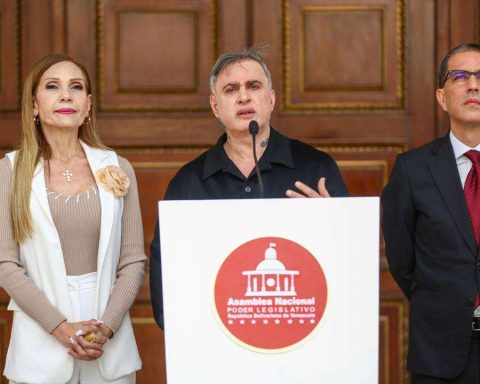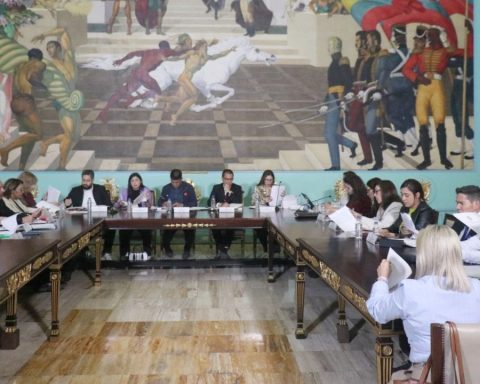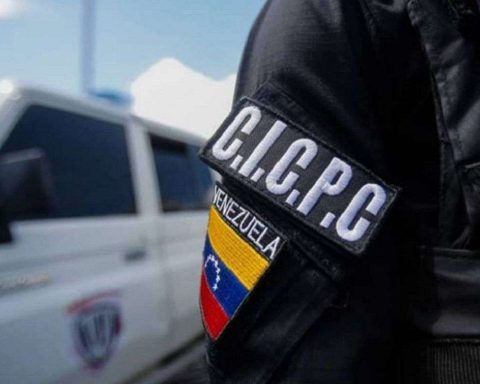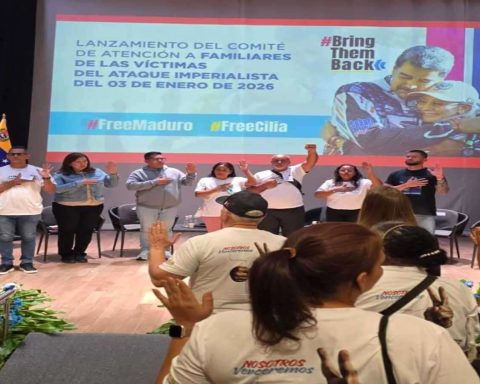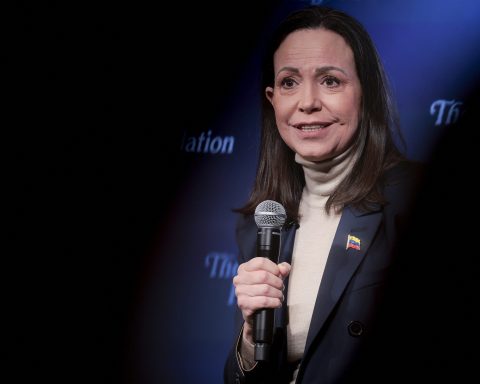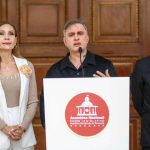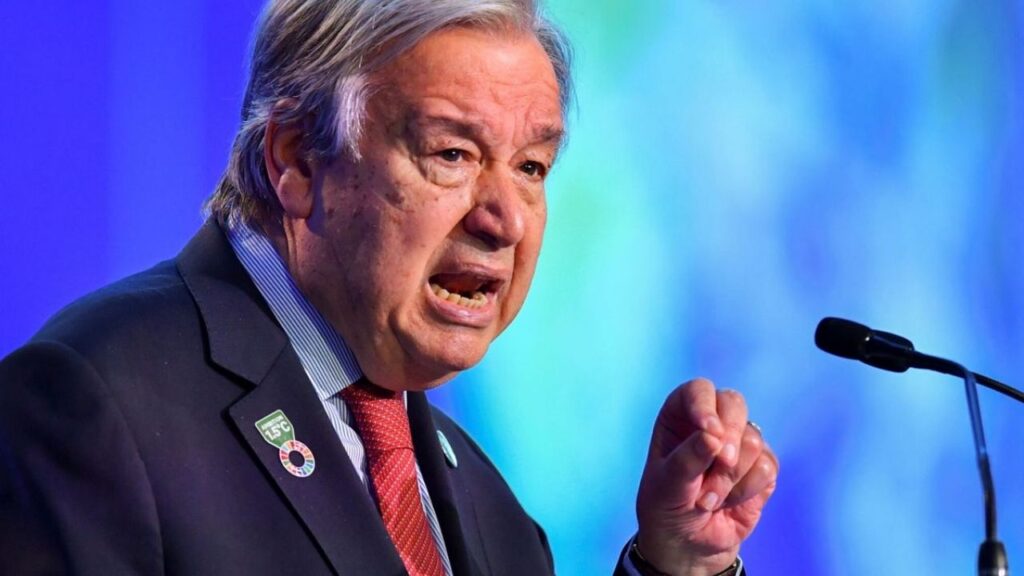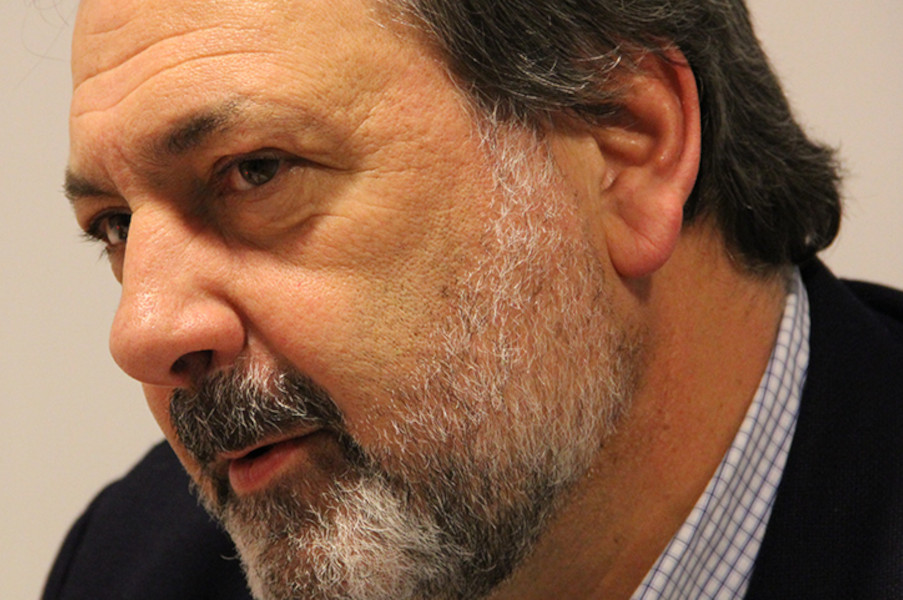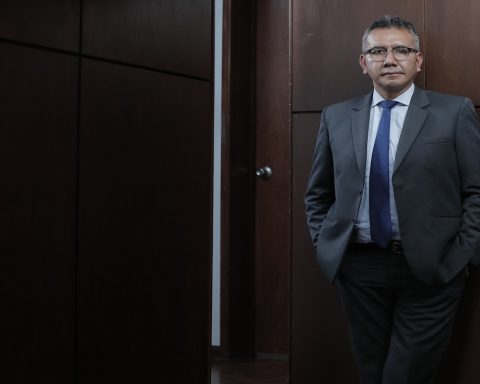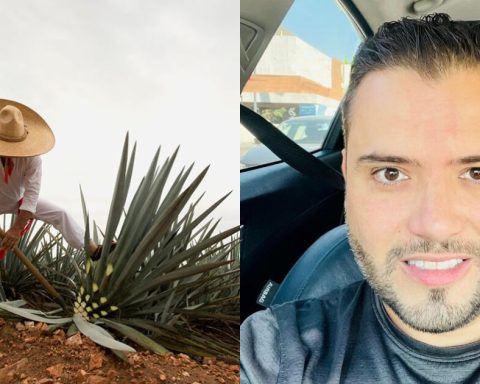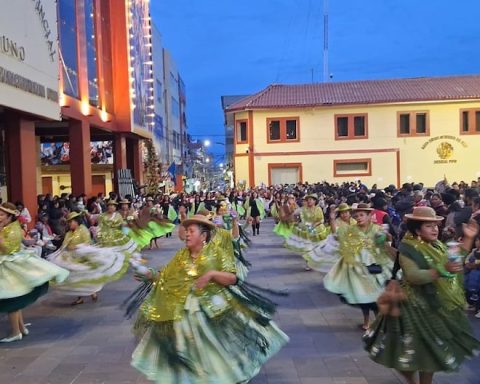The strategy of the United States Government to appropriate the assets of Venezuelans is crumbling, and with it the corrupt plots and their actors are revealed.
If we locate those responsible, the majority are familiar faces and others not so much, people who insisted on raising a speech for the supposed defense of Venezuelans, when in reality they tried to loot national companies; One of these cases was the Monómeros fertilizer industry, a subsidiary of Pequiven located in Barranquilla, Colombia.
Through a false meeting imposed in Monómeros by former deputy Juan Guaidó and the so-called G4 (Democratic Action, Popular Will, First Justice and A New Time), which was endorsed by the deputies of the National Assembly elected in 2015, they embezzled to the PDVSA subsidiary.
The national secretary of the opposition group Alianza del Pencil, Ismael León, lambasted “the deputies who supposedly participated in the appointments”, to whom he asked: “come to the media and show your face”.
The company was considered one of the largest subsidiaries of PDVSA that carries out its operations abroad, in almost the same conditions as Citgo. Experts assure that Monómeros remained solvent in 2014, 2015, 2016 and 2017, years before the illegal United States sanctions were issued. According to the Superintendence of Companies of Colombia, since 2014, Monómeros has generated profits between 10 and 20 million dollars a year”.
Already for 2018, with the restrictions of the sanctions, the company generated losses of 17,744 million dollars. After the administration of Juan Guaidó was installed in the company in 2019, in complicity with Iván Duque, the US government stopped seeing Monómeros as a target, despite the constant outflows of capital to satisfy the demands of partisan interests and the contracts that left high commissions for the interim board of directors, the losses of Monómeros were represented at 6,862 million dollars.
In 2021, Guaidó’s false directive announced that the amount of his earnings was more than 51,000 million dollars. This balance was denied by former deputy José Luis Pirela, of the opposition Fraction July 16, linked to María Corina Machado.
“The new lie of the Monomers board is to display figures made up with a false success, that is why they have never facilitated the performance of a reliable external audit,” he said.
Among the complaints that were handled was that the first year of the ad hoc directive, it authorized operating with high costs that affected the coffers of the state company, in addition to the allocation of payments and benefits to members of the executive committee of said company, which reached the 4 million dollars.
Another irregularity was a cash flow deficit, which is evidenced by the delay of more than 45 days in payments to suppliers of raw materials and services. Meanwhile, opposition deputy José Brito accused the ad hoc board of supplying urea for drug cartels in Colombia, as well as paying commissions for contracts.
From the top to the pit. The Monómeros payroll has more than 600 direct employees and the capacity to generate 1,500 additional indirect jobs.
Among the strengths that Monómeros had was the high demand for urea in the Colombian countryside. Producers had first-hand access to this input. It is estimated that the market dominated by Monomers was 50%.
In other words, it was the representation of stability for sectors of the food industry, in a large part of Colombia, that could reduce costs through subsidies and save on importing supplies, since they had the inputs they required in the production cycles. sowing.
While the Venezuelan State was in charge of the company, it positioned itself as one of the main suppliers of the Colombian agro-productive sector.
But, in 2019, Monómeros was declared future financially unviable by the Colombian Superintendence of Associations, an instance that detected a deficit in its cash flow, with losses of 30 million dollars during that year.
In the first half of 2020, Carmen Elisa Hernández, president of the ad hoc board Monómeros appointed by Guaidó, presented an operating profit of 10 million dollars. Contradictorily, in the last quarter of 2021, (Hernandez resigned from her “position” days ago) they were declaring an emergency and announced that they were adhering to the Colombian rescue plan; a strategy covered by Decree 560 issued in 2020, which establishes temporary benefits and protection measures for companies affected by the covid-19 pandemic.
Subsequently, the Superintendence of Companies of Colombia detected financial and administrative irregularities, for which it indicated that it should enter into a submission and control order.
The revealed balance pointed out that Monómeros had gone from having a profit of $24,245 million in 2017, to a loss of $62,785 million in 2021.
At the beginning of that year, Guillermo Rodríguez Laprea was appointed general manager of Monómeros to replace Gustavo Sol, by unanimous agreement of the political parties that supported Guaidó’s interim term.
This staunch opponent was questioned for his opacity in managing the company. And the complaints not only came from the anti-Chavista camp but from the Monómeros workers themselves. Three months after taking office, the subsidiary’s workers’ union accused him of signing a disadvantageous contract with a company with no track record in the agricultural area (Lion Street Ventures Corp).
The pressure for this irregularity was so great that he had to cancel said contract, in which he gave 60% of the profits to this partner.
After these results, the former deputy Pirela stated that he had a 39-page brief with more than 315 pages that support the complaint of theft, corruption, illicit enrichment of individuals, omission of complaints from individuals, bribes, favors in the execution of contracts. with surcharges that affect the company’s assets, among others.
It all reads like a series of negative affiliations that ended up turning the company into a dispossession of what was once one of the main fertilizer industries in the region.
Based on this situation, the Superintendency of Companies took control of the industry and on August 10, 2022, issued a resolution that annulled Guaidó’s interim directive.
The Venezuelan prosecutor’s office, on August 22 of this year, sent a commission to Colombia with the directors against Organized Crime and against Corruption, Ángel Fuenmayor and Fernando Silva, respectively, together with three prosecutors from the Public Ministry, with the mission of deepening on the acts of corruption in the Monómeros agrochemical company.
The faces of those who looted the subsidiary of the main fertilizer industry in Venezuela
The false Ad Hoc Board
On March 19, 2019, the National Assembly, qualified in contempt by the TSJ, appointed an ad hoc board of directors, made up of:
- Jon Mirena Bilbao Boroja,
- Rogelio R Lozada Briceno,
- Enrique S Torres Galavis,
- Maira Z Olivares Acevedo,
- Freddy Roy Goerke Garcia,
- Fernando Asenjo-Rosillo,
- Mireya Riupanti de Amaya,
- Jorge A Yanez Jimenez,
- Ivan Angel Ivanoff Socorro,
- Tom Gustavo Delfino
- Jose Alberto deAntonio
- Carmen E Hernandez,
- Javier Ricardo Linares Pena,
- Jose I Gonzalez Alvarez,
- Raphael A First Ship,
- Ceimy D Martinez Budez,
- Yadid Khalaff Reyes,
- Ramon A Crespo Morles,
- Nelson Raphael Della Roca,
- Luis Alfieri Hurtado,
- Fernando M Paredes Child and
- Jean Paul Dugarte Ortiz.
The G4 robbed the fertilizer company
Caracas. The false directors of Monómeros placed by Juan Guaidó and the G4 had shady and questioned actions even in the opposition ranks.
One of those illegalities that aroused the most discontent was the hiring of the company Llorente y Cuenca, for which Antonieta Mendoza de López, mother of Leopoldo López, works to lead mediation projects and actions and political and institutional relations on an international scale. One of the invoices paid to López’s mother would have been US$70,000.
The contract was signed by the then president of the false ad hoc board, Carmen Elisa Hernández, who, when trying to get rid of the connection, denied knowing that Mendoza López was part of that firm. “If I had known that Antonieta Mendoza had a management position on the board, she would not have considered contracting with Llorente and Cuenca in any way.”
From within the National Assembly elected in 2015, complaints of administrative mismanagement of the company by the “interim” came to light. And they accused the pseudo-managers of using Monómeros for petty cash.
This explains how the extreme right fraction of Acción Democrática (AD), Voluntad Popular (VP), Primero Justicia (PJ) and Un Nuevo Tiempo took it upon themselves to support their contacts to relate to Monómeros.
Thus, from the ranks of AD, Henry Ramos Allup and Luis Aquiles Moreno nominated Guillermo Rodríguez Laprea, Gustavo Sol and Jorge Yáñez, who are accused of signing juicy contracts that gave them commissions with Lion Street Ventures Corp, SA They are accused of promoting the hiring of the companies Capocar and Ocean of the Pacific, where Rodríguez Laprea worked.
Meanwhile, the national coordinator of Primero Justicia and a fugitive from justice, Julio Borges, has been accused of taking resources from Monómeros to cover the armed operations against the institutions of Venezuela, which were planned from Colombia during the government of Iván Duque.
And for a New Time, its president, Manuel Rosales, directed Monómeros directly, according to Guaidó’s envoy for Colombia, Humberto Calderón Berti, who reported that they even shared the space. “The embassy office is half owned by Monómeros and the other half was ceded to the diplomatic mission in order to function.”
Calderón Berti himself indicated that Leopoldo López asked him to create a list of candidates to direct Monómeros and, in that sense, he presented 38 names. The “diplomat” blurted out that later a dark hand brought people in for political reasons.
In another accusation, Calderón Berti assured that the former opposition deputies Jorge Millán (PJ), Tomás Guanipa (PJ) and Alfredo Chirinos (AD), held meetings with the false directors of Monómeros to collect in advance the money for voluntary support fees, paid in dollars, to support opposition campaigns.





